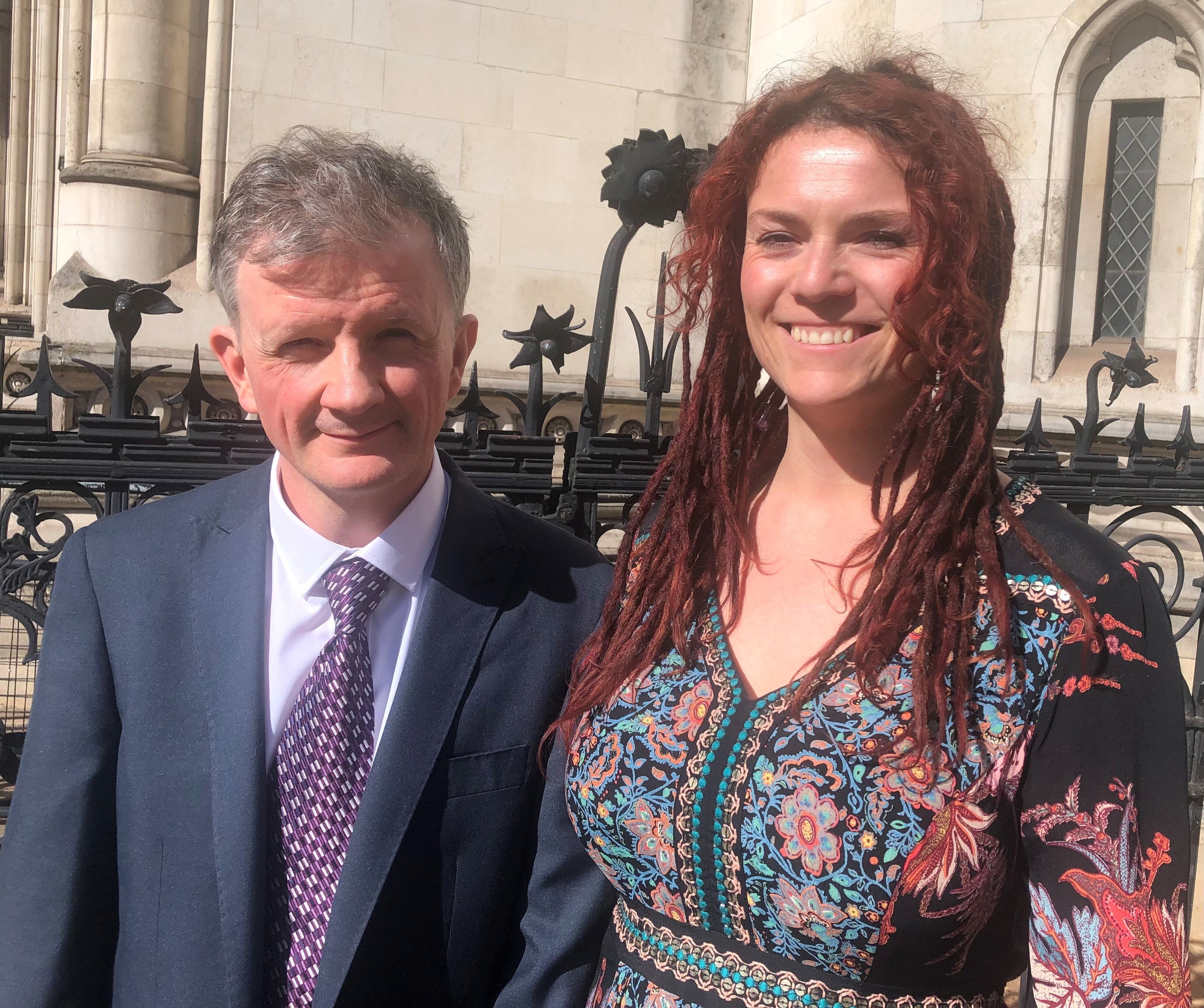Anti-vivisection protesters given suspended sentences for injunction breaches
Michael Maher, 48, and Sammi Laidlaw, 35, took part in demonstrations at MBR Acres Limited in Cambridgeshire.

Two anti-vivisection protesters have avoided jail after they admitted breaching a High Court order limiting demonstrations at a site where animals are bred for medical research.
Michael Maher, 48, and Sammi Laidlaw, 35, were handed suspended prison sentences by a judge at the Royal Courts of Justice in London on Tuesday.
MBR Acres Limited, a company which breeds animals for research, accused the pair of entering an exclusion zone at its site in Wyton, Cambridgeshire, in breach of a judge’s order, during anti-vivisection demonstrations in November 2021 and May this year.
Maher, from Dorchester, Dorset, and Laidlaw, a housing officer from Southend, Essex, who are part of the Camp Beagle protest group, admitted to unintentional breaches, including entering the zone and approaching or obstructing vehicles exiting it.
Mr Justice Nicklin handed Maher a three-month prison sentence suspended for 18 months and gave Laidlaw a 28-day sentence which was also suspended for 18 months.
Concluding that their breaches were not inadvertent and had caused harm, he warned the pair that “the future lies in your hands” and urged them not to breach the injunction again or “the overwhelming likelihood will be that the court will send you to prison”.
A third protester, 52-year-old Victoria Asplin, a carer from Huntingdon, Cambridgeshire, was given no penalty for similar breaches of the court injunction in May, with the judge assessing her case as less serious and including an inadvertent breach.
“Moderate your protest so that you stick to the rules,” the judge told all three defendants.
In a separate ruling on Tuesday, the judge criticised MBR Acres for its “wholly frivolous” bid that “borders on vexatious” to bring contempt of court proceedings against a lawyer it alleged had breached the injunction by entering the exclusion zone and obstructing a vehicle.
Gillian McGivern, whose law firm has acted for protesters arrested at the Wyton site, was initially accused by the company of being a protester herself and covered by the terms of the injunction that accounted for “persons unknown”.
But Ms McGivern insisted she had no knowledge of the injunction and had visited the site in order to get a better understanding of the legal issues there.
Mr Justice Nicklin concluded that “the breaches alleged were trivial or wholly technical”.
Myself and others are trying so hard to address what we feel is an unlawful business.
“Apart from a technical trespass, it is difficult to identify any civil wrong that was committed by Ms McGivern,” he said.
He added: “This was not the sort of conduct that the injunction was ever intended to catch.
“The court does not grant injunctions to parties to litigation to be used as a weapon against those perceived to be opponents.”
The judge said he would make an order requiring MBR Acres to get permission from the court before they can bring further contempt applications against anyone alleged to be in the “persons unknown” category.
For the sentencing hearing, Caroline Bolton, representing MBR Acres, claimed in written arguments that the three protesters’ “flagrant” breaches were “wanton disobedience of the injunction order”.
“The defendants were not prevented from exercising their right to protest, and did not need to breach the injunction order to exercise that right,” she said.
Addressing the judge on Tuesday, the protesters, who are among a number of activists against whom MBR Acres has taken legal action, apologised for their actions.
Maher said in court that he had a “very short fuse”, adding that he was protesting against an allegedly “evil business that sends puppies to be sent to laboratories so that they can be poisoned to death”.
Laidlaw claimed in court: “Myself and others are trying so hard to address what we feel is an unlawful business.”
In sentencing, Mr Justice Nicklin said the injunction was to prevent “unpleasant confrontations” and “flaring up” between protesters and employees at the Wyton site.
He added that it aimed to “hold the balance between the rights of the demonstrators to protest and the rights of the employees to come and go freely”.
The judge was previously told that pop star Will Young had been involved in a demonstration outside the Wyton site in November.
